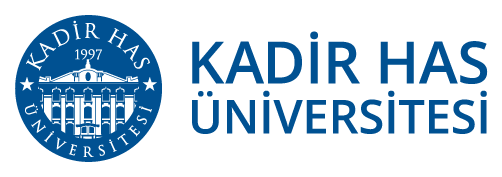Our University determinedly makes efforts to attain the goal of the UNDP for “No Poverty”. This goal is one of the basic steps taken on the way to sustainable development because the efforts to end poverty are one of the keys to building a fair and sustainable world.
The scholarships and courses given, as well as the publications provided at our University concerning this goal, are detailed below.
- White Doves Scholarship Program
This is an important education opportunity granted to the successful young students of our country so that the candidates living under restricted economic conditions can use the best education opportunities to improve themselves and contribute to their respective areas and the country.
Those who failed to grasp a chance of enjoying a scholarship due to reasons beyond control will benefit from the opportunity of receiving a scholarship at Kadir Has University within the scope of the White Doves Scholarship Program with contributions from donors and the Kadir Has Foundation. This scholarship does not cover only the exemption from education fees but also allowances for accommodation, books, and pocket money.
- Publications
- Yıldırım, K. “Who receives clientelistic benefits? Social identity, relative deprivation, and clientelistic acceptance among Turkish voters”, Turkish Studies, 24(2): pp.231-257.
- Tekgüç, H., Ünsal, E. B., & Yeldan, E. (2023). Poverty and income distribution incidence of the COVID-19 outbreak: investigating socially responsible policy alternatives for Turkey. Southeast European and Black Sea Studies, 23(2), 339-363.
- Turunç, G., & Kisbu, Y. (2023). Emotional, cognitive, and social functioning in children and early adolescents living in post‐armed conflict: Testing mediating mechanisms. International Journal of Psychology, 58(1), 78-84.
- Courses
- History of Modern Turkey (HST 101 and HST 102): This course teaches the history of the period from the 19th century until the beginning of the 21st century under various themes. Economic history is one of these themes. Under this theme, the students learn about ‘poverty’ in the context of the experiences of different economic classes, the transformation of class structures, and the financial crisis.
- The mandatory course of design for all the first-year students of the university under the Core Program deals with design and social relationships, and the different social facts and cases are discussed with the students at the seminars. The design examples addressed in the course seminars include projects of various scales from Turkey and foreign countries intended to strengthen the urban poor economically and socially, delivering equal opportunities. Within the scope of this course, out of the student projects designed to provide a solution to a particular problem identified by the students at the campus and its surroundings, specific projects focus on urban poverty; for example, the campaigns to reduce the meal prices at the university, the mapping of those businesses that offer health and quality products in the surroundings of the campus designing the brochures thereof to be distributed at the campus, the organizations of tours of “Cibali for lower prices”, the events for painting, origami, new-year tree decoration at Cibali Neighborhood House together with the children of those low-income families living in Cibali Neighborhood.
- KHAS101 Origins and Consequences: This course analyzes the valuable consequences of inventions in the different scientific fields for the people, and the modules called Quantum Technologies and Basics of Evolution motivate the students to think of what to do to end poverty. The students do research homework in any field of their choice, analyzing the topic thoroughly.
- KHAS 105 Universal Values and Ethics: The Ecologic Crisis and Coexistence of Species module analyzes the environmental problems in the context of social justice. The students discuss the environmental issues with an intersectional point of view and question how these environmental problems deepen one another in this way.
- KHAS 110 Social Responsibility: A partnership is established with the Basic Needs Association (TİDER) within the scope of this course to support disadvantaged groups. The students under the organization of TİDER have supported food banks. A Food Bank is a market where people in need can get what they need on a monthly basis. Those in need can get what they need regarding clothing, food stationery, etc., in the food banks. The students serve in different positions for the food banks, providing the human labor as needed by these banks.
